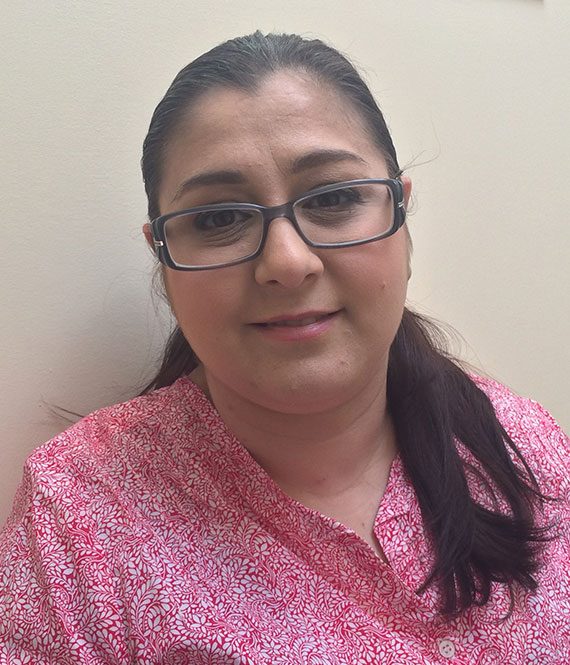Just like his blood cancer diagnosis back in 2016, Blair Richardson says the coronavirus pandemic has thrown his whole life for a loop once again.

The 26-year-old from Calgary, Alta., continues to receive five days of chemotherapy treatment after every six weeks. But uncertainty about safe hospital care, coupled by the fear of catching the COVID-19 disease, is a major concern for him.
As a result of the pandemic, Richardson has also developed some severe anxiety disorders for which he is seeking treatment.
“As someone who has a very weakened immune system, I live my life in fear,” he told Global News. “How could COVID affect the rest of my life?”
Cancer patients and those with underlying medical problems are at a higher risk of developing serious illness from COVID-19.
Toronto resident and a 12-year lung cancer survivor, Anne Marie Cerato, said she became very paranoid when the pandemic started.
“In the beginning, I was very, very scared,” the 42-year-old, who still has active cancer, told Global News.
“I kept thinking to myself, if I get COVID, I’m a goner.”
With time and the support of her family, Cerato said she has become calmer and is now looking forward to getting the vaccine.

With screenings, procedures and treatments delayed across Canada, the coronavirus pandemic has had a ripple effect on other parts of the country’s health-care system.
According to data from the Canadian Institute for Health Information (CIHI), between March and June 2020, cancer surgeries were down by 20 per cent compared to the previous year.
A July survey by the Canadian Cancer Society (CCS) found that almost half of the patients reported having their cancer care appointments postponed or disrupted. This has created a massive backlog for hospitals.

Get weekly health news
“It’s a huge concern for us because having timely treatment and care is so important to your long-term outcomes when you have cancer,” Andrea Seale, CEO of Canadian Cancer Society, told Global News.
“What we’re hearing from some doctors is that people are coming to them with later stages of cancer than they would normally see,” she added.

In another July survey published in the Lancet medical journal, 74 per cent of cancer patients reported that the delays had a major impact on their mental and emotional wellbeing.
Young Adult Cancer Canada (YACC) is a non-profit organization that provides support services to a community of some 4,000 teenagers, people in their 20s and 30s.
Geoff Eaton, founder of YACC and a two-time cancer survivor, said there has been an increased demand for their programs since March.
The charity had to cancel all their in-person retreats, adventures and conferences and moved their services online, with weekly chats and talk shows for young adults to stay connected.
“There is this heightened intensity brought to our lives right now and then on top of that, you have put us in a place where we literally are in isolation physically because we’re afraid, oftentimes, to go out into the community,” Eaton told Global News.
Promising research
Globally, cancer is the second leading cause of death after cardiovascular disease, according to the World Health Organization (WHO). In 2020, the number of people diagnosed with cancer reached 19.3 million, with the number of people dying from the disease increasing to 10 million.
In Canada, one in two people will be diagnosed with cancer in their lifetime and one in four are expected to die from it, according to the CCS.
Each year, about 250,000 Canadians get cancer, Seale said. More than a million are living with the disease or beyond it, she told Global News.
However, recent advancements in cancer research have raised hopes in the fight against the disease.
In the United States, healthcare company GRAIL has developed a multi-cancer early detection test called Galleri that can detect more than 50 different types of cancer. The test will become commercially available in the U.S. in the middle of 2021.
“These really are the first efforts to use … technology to screen patients who are not known to have cancer, to find cancer, and that’s a very different technological challenge,” said Dr. Joshua Ofman, chief medical officer at GRAIL.
Immunotherapy, which uses the body’s immune system to fight cancer, is a promising treatment, Seale said.
Clinical trials in Canada, the results of which were published in The Journal of the American Medical Association on Thursday, underscored the value of magnetic resonance imaging (MRI). The study found that more than one-third of the male patients could avoid having the more invasive biopsy and instead have an MRI to detect prostate tumours.
Going forward, Seale said to continue the battle against cancer, COVID-19 has to end.
“We need the pandemic numbers to come down so that people with cancer can get the care that they need,” she said.
- Kate Middleton marks quiet return to work following cancer treatment
- Health Canada gives 1 year to remove BVO from drinks. What are the risks?
- ‘Deeply ashamed’: Canadian Medical Association apologizes for harms to Indigenous peoples
- Never heard of eastern equine encephalitis? Cases are ‘likely underreported’











Comments